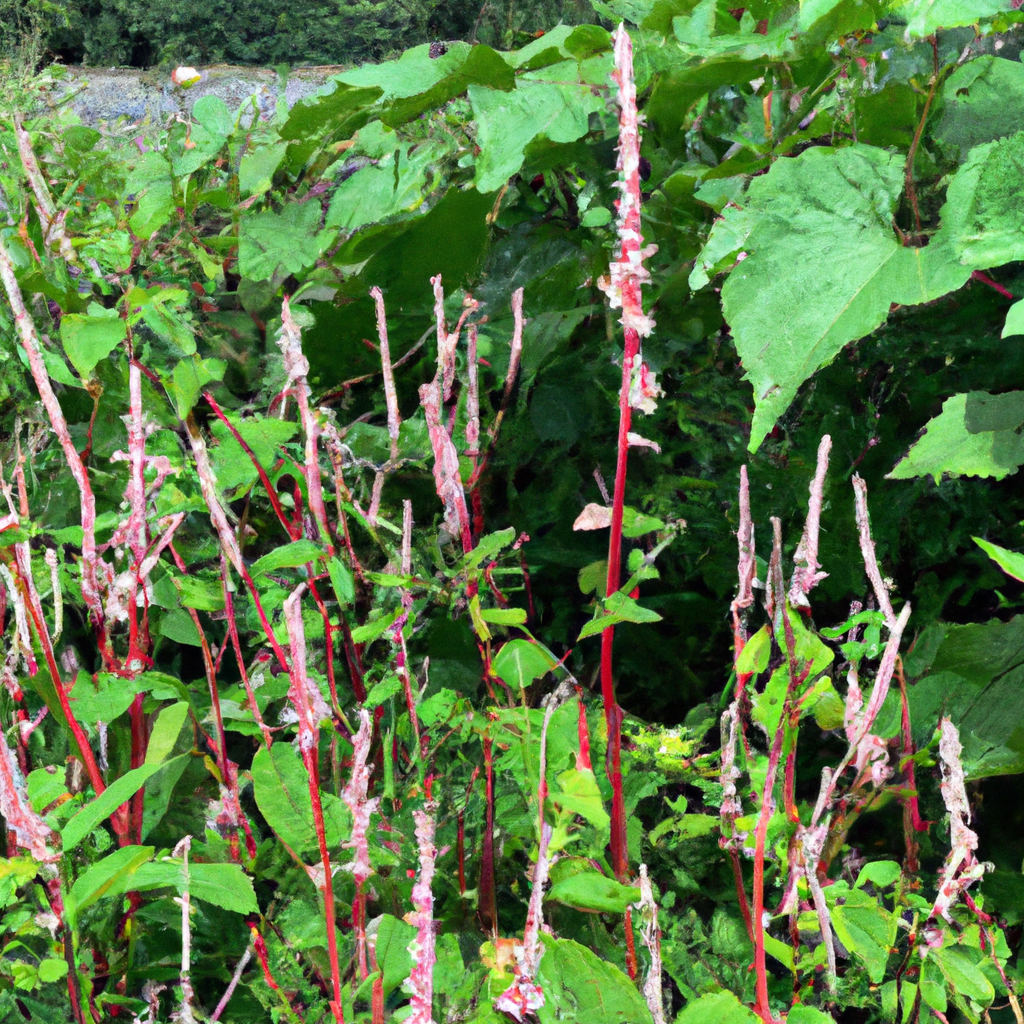Biological Name:
Knotweed: Polygonum spp.
Natural Habitat:
Knotweed: The natural habitat for Knotweed is in forests, thickets, and wooded areas in Asia and Europe.
Description:
Knotweed is a type of flowering plant that is commonly found in fields and other grassy areas. It is a member of the Polygonaceae family which also includes plants such as rhubarb and sorrel. Knotweed is an annual or perennial plant that produces small white or pink flowers and clusters of seeds. The plant is often used as a cover crop to improve soil health and suppress weeds. It is also known for its ability to tolerate a wide range of growing conditions including wet or dry soils. In some areas knotweed is considered a weed because of its ability to invade cultivated areas and cause allergies and other health problems.
Frequently Asked Questions (FAQs)
Q: Why is giant knotweed a problem?
A: Knotweed is capable of completely smothering out all other plant life, launching a domino effect that leads to other native species, like insects and birds, to leave the area as well.
Source
Q: Should I remove knotweed?
A: Cut Down and Remove the Canes Because Japanese knotweed is considered a controlled waste due to its potential to cause ecological damage, be sure to carefully dispose of the roots. Never put Japanese knotweed in a compost pile where the soil can become contaminated with bits that can continue to sprout and spread.
Source
Q: What will choke out knotweed?
A: Spring is the beginning of the Japanese knotweed’s growth season, so smothering it with a tarp and keeping it tamped down with heavy rocks can ultimately kill the plant. To smother Japanese knotweed, cut all the tall stems as close to the ground as possible. Then, remove debris from the area the knotweed grows in.
Source
Q: Why should you not cut Japanese knotweed?
A: If you do find Japanese knotweed on your property it is most important that you prevent further spread of the plant. Do not strim, cut, flail or chip the plants as tiny fragments can regenerate new plants and make the problem even more difficult to manage.
Source
Q: Is knotweed good for anything?
A: Knotweed is an herb. The whole flowering plant is used to make medicine. Knotweed is used for swelling (inflammation) of the main airways in the lung (bronchitis), cough, sore throat, a mild form of gum disease (gingivitis), and other conditions, but there is no good scientific evidence to support these uses.
Source
Q: What happens if you dig up Japanese knotweed?
A: Digging the plant out of the ground can cause more problems in the long run, owing to its ability to regenerate from small pieces of root and the issues around its disposal. It is possible to gradually weaken the plant by removing all leaves as soon as they grow, which stops the plant photosynthesising.
Source
Q: Does Japanese knotweed ever go away?
A: A Growing Problem. Knotweed is programmed to grow, its underground rhizome system extending year on year, infecting more ground. It’s a problem that simply won’t go away on its own, so the sooner it’s tackled the better.
Source
Q: Why is Japanese knotweed a threat?
A: Japanese knotweed can spread very quickly and forms dense colonies that out-compete native vegetation by blocking sunlight, releasing chemicals (allelopathic) from its rhizome that suppress plant growth and germination, and robbing nutrients and water from the soil.
Source
Q: How do I permanently get rid of Japanese knotweed?
A: The best approach to control is through a combination of cutting and herbicide application. A late spring/early summer treatment followed by an early fall re-treatment is needed. Several years of treatment may be needed for well-established populations.
Source
Q: What problems does knotweed cause?
A: In its drive to expand, Japanese knotweed will exploit existing weaknesses in property underground services, walls, concrete, foundations, fences, out-buildings and conservatories. As it grows and expands, it will crack walls, ruin garden fences and it can even break through into buildings.
Source
Q: What happens if you touch knotweed?
A: Japanese knotweed is not poisonous and is not harmful to touch, however, always use caution to avoid inadvertently allowing the infestation to spread.
Source

